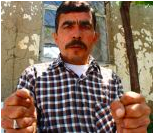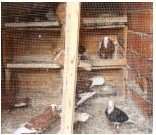NILAY VARDAR REPORTED FROM SOMA
So, What is Soma District Like?
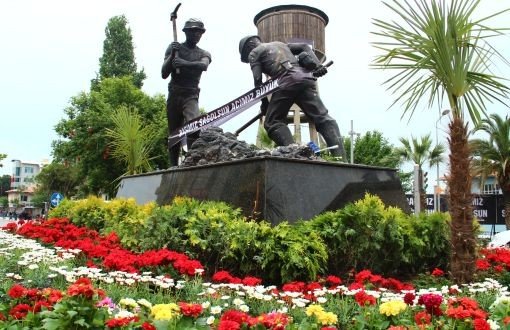
The Prime Minister’s guards kidnapped a woman, they barely saved her... The Prime Minister didn’t slap anybody, it was a lie... The police broke the lawyer’s arm? Who was it who kicked that miner? 780, not 301 workers died, for sure...
Everyone in the streets, grocery stores, shared taxis, butcher shops in Soma are talking about the mine murder.
The claims in the district take an extreme form. Everybody has something to say.
The journalists’ job is even harder. Someone comes up to you with a piece of paper saying, “This person’s missing,” and then the same name comes up in the list. Sentences that start with our neighbor said do not reach a conclusion.
As for miners, they are out in the open for the first time, and they’re anxious about getting their voices heard. Miners coming up to me show me an uncompensated missing finger or unmoving arm. I cannot keep up.
A total of 10 days have gone by since the workplace murder in the Soma mine.
But what’s Soma like?
This greenest district in Turkey’s west, in Manisa greets you with a sculpture of two miners. Now they’ve planted flowers around it in memory of the deceased workers.
The same words show up everywhere, on all shop fronts in the district made up of two avenues: We are sorry for our loss [Başımız sağolsun].
70 percent of the population of the district of 105 thousand consists of immigrant mineworkers from provinces such as Kütahya, Zonguldak, Balıkesir, and Ordu. So it’s quite a cosmopolitan district.
The district’s coal reserves were discovered a hundred years ago, but the population boom increased further with the establishment of the Soma thermal plant in 1953.
Approximately 15 thousand miners work in Soma Mining Co.’s three mines, the place of death of 301 workers, İmbat Mining and state-owned Ege Lignite.
Moreover, the district still attracts investors. Koç Group’s Demir Export is preparing to open up a new mine. A second electrical plant in Soma’s Deniş region is also in the idea stages. A cement factory in the village of Avdan using the ashes from the plant also forms part of the tentative plan.
Meaning, the mine-dependent district economy get steeped further in this web every day.
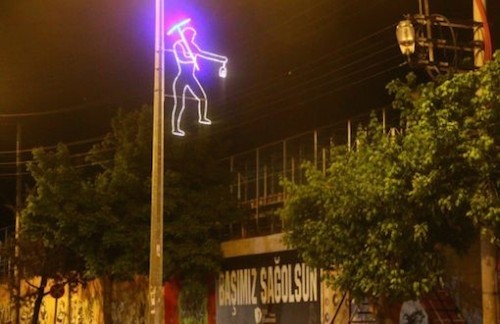
Mining has also created its side branches. Around 2 thousand families get by on the transportation sector, along with the vehicle owner and the driver, carrying the coal, and the miners to the mine.
Aside from mining there is also a small, organized industrial zone of 186 stores employing approximately 3 thousand.
As for agriculture, the days of families getting by on only agriculture are in the past. In the district where tobacco is the locomotive force of agriculture, the quota system and the gradual lack of support has reduced the number of certified tobacco farmers to 600.
Olive farming took the place of tobacco on 4.6 hectares of land. Some vegetable and fruit farming also takes place. But agriculture does not provide a livelihood for any family anymore; it’s just a source of added income. The number of bovine and ovine animals in total is only 15,000.
Job opportunities are even more limited for women. Aside from small business owners and artisans, women go to nearby districts as seasonal agricultural workers to harvest olives and vegetables.
Social life in Soma, with two hospitals, Celal Bayar academy raising technicians for mines, and a movie theater is similar to that in other districts. The best place to take a breath is in the tea garden amid the trees.
The district is high on credit debt. Most mineworkers are trying to buy a house.
While district administration used to belong to the Democratic Left People’s Party (DSP), the Justice and Development Party (AKP) has won the last three periods. In the latest election AKP gathered 43, the Nationalist Movement Party (MHP) 28 and the Republican People’s Party (CHP) 22 percent of the votes. It is no longer just rumor that mineworkers are forcibly taken to AKP rallies.
Soma residents say, “What are people to do, is there another way to get by?”
A mother says she joined AKP as a “compulsory volunteer” in order for her son to attain employment in Ege Lignite, the relatively safe state institution that extracts coal from above ground.
“It gets tough here if you’re not with AKP,” says the woman. Whether right or wrong, my other interlocutors are also of the same view.
But are Soma locals happy with mining? No. “Who would go into the mines if they didn’t have to?” complain residents of the district with at least a miner or miner relative in every house.
Everyone says, “If mining ends in Soma, Soma will crumble.” Because the entire economic web has been constructed around this. Some Soma residents have found the answer in leaving Soma. (NV/PU/BM)
* Click here to read the article in Turkish.
Engineers Inspect Hasankeyf: Caves Damaged
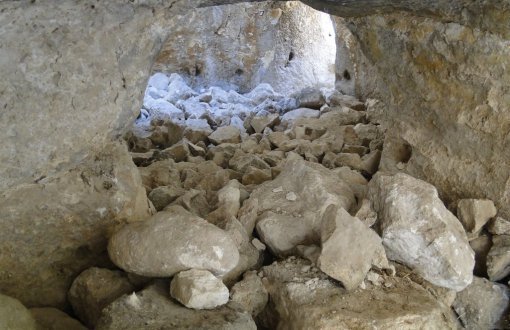
Sexual, Physical Violence Against People With Disabilities Increase

Villagers on Watch in Çanakkale Against Geothermal Power Plants
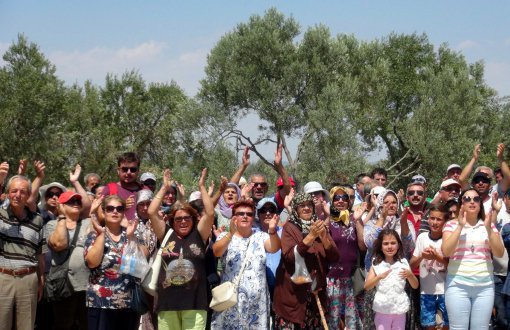
Judge Replaced Ahead of Summary Judgement in Soma Trial
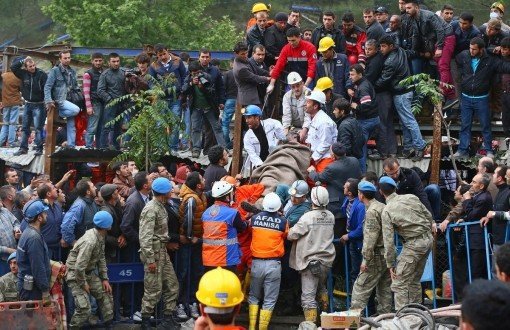
Most Miner Families Withdraw Complaint in Occupational Homicide Trial in Şirvan






